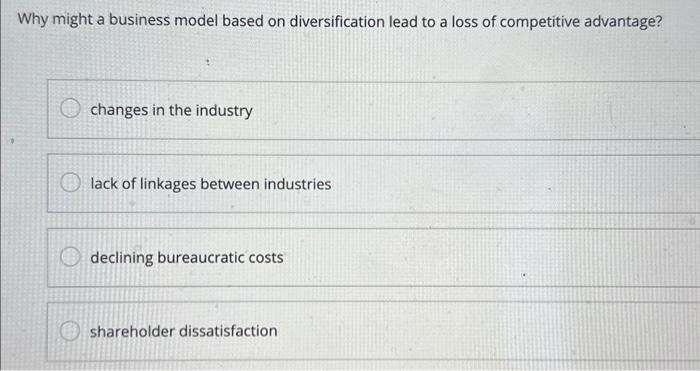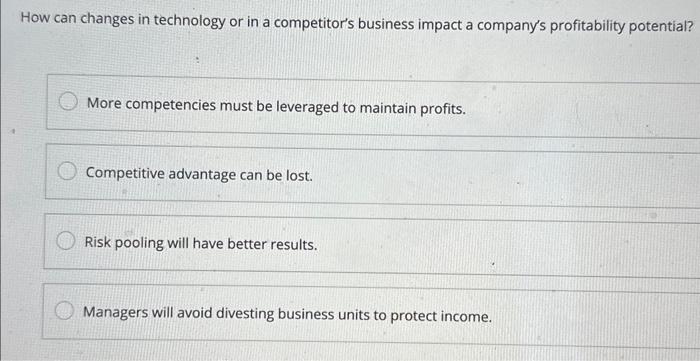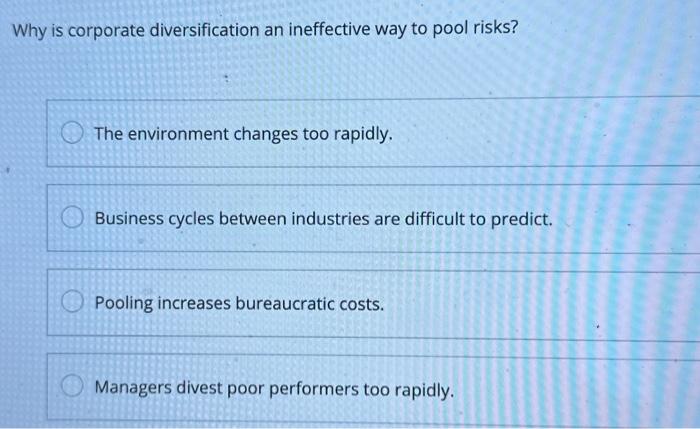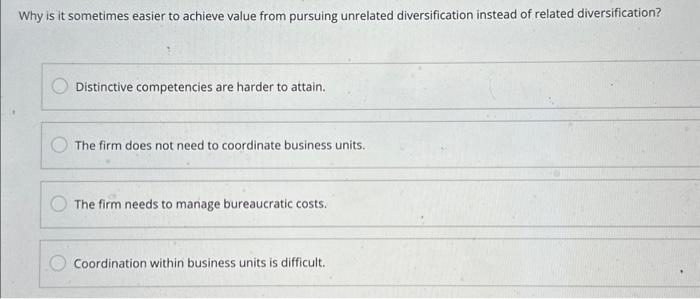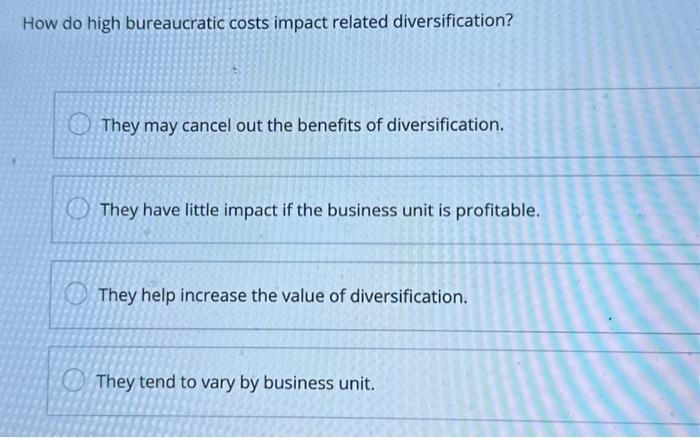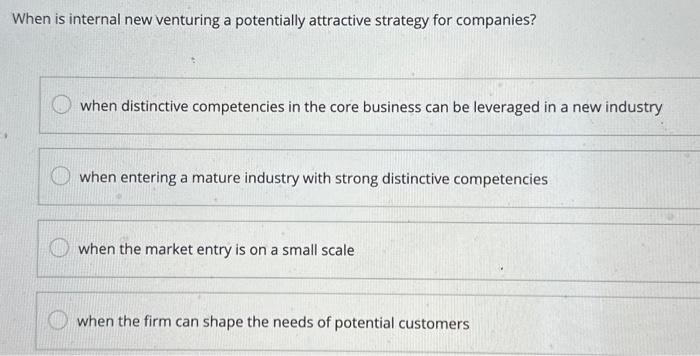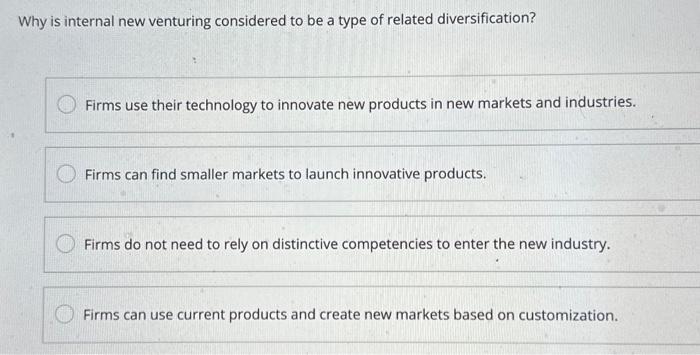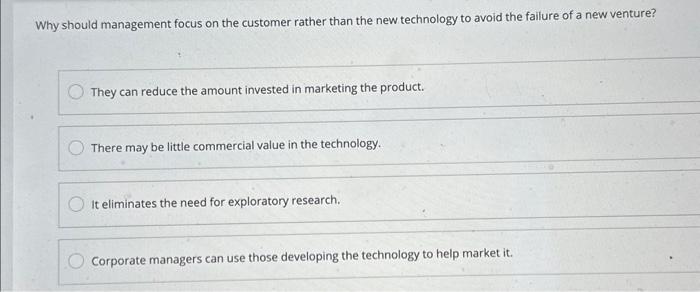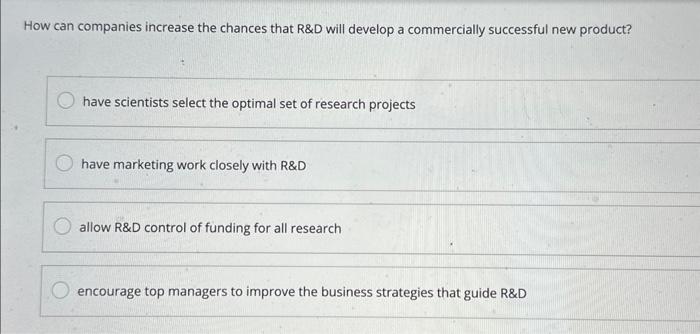10 PART QUESTION!! please help I need to solve ALL parts to get full credit!!
Super long question need all parts completed please!
thanks !!
Why might a business model based on diversification lead to a loss of competitive advantage? changes in the industry lack of linkages between industries declining bureaucratic costs shareholder dissatisfaction How can changes in technology or in a competitor's business impact a company's profitability potential? More competencies must be leveraged to maintain profits. Competitive advantage can be lost. Risk pooling will have better results. Managers will avoid divesting business units to protect income. Why is corporate diversification an ineffective way to pool risks? The environment changes too rapidly. Business cycles between industries are difficult to predict. Pooling increases bureaucratic costs. Managers divest poor performers too rapidly. How do bureaucratic costs create limits on the amount of unrelated diversification that a company can profitably pursue? They eliminate economies of scope between business units. Diversification must leverage a firm's free cash flow. There has to be a profit-enhancing advantage to the diversification. Firms have to be able to transfer competencies between business units. Why is it sometimes easier to achieve value from pursuing unrelated diversification instead of related diversification? Distinctive competencies are harder to attain. The firm does not need to coordinate business units. The firm needs to manage bureaucratic costs. Coordination within business units is difficult. How do high bureaucratic costs impact related diversification? They may cancel out the benefits of diversification. They have little impact if the business unit is profitable. They help increase the value of diversification. They tend to vary by business unit. When is internal new venturing a potentially attractive strategy for companies? when distinctive competencies in the core business can be leveraged in a new industry when entering a mature industry with strong distinctive competencies when the market entry is on a small scale when the firm can shape the needs of potential customers Why is internal new venturing considered to be a type of related diversification? Firms use their technology to innovate new products in new markets and industries. Firms can find smaller markets to launch innovative products. Firms do not need to rely on distinctive competencies to enter the new industry. Firms can use current products and create new markets based on customization. Why should management focus on the customer rather than the new technology to avoid the failure of a new venture? They can reduce the amount invested in marketing the product. There may be little commercial value in the technology. It eliminates the need for exploratory research. Corporate managers can use those developing the technology to help market it. How can companies increase the chances that R\&D will develop a commercially successful new product? have scientists select the optimal set of research projects have marketing work closely with R\&D allow R\&D control of funding for all research encourage top managers to improve the business strategies that guide R\&D
